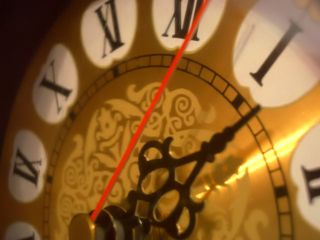Time Change: Springing Forward Could be Bad For You

"We are placing these people back into February. We are dealing with a public health issue and the extension of Daylight Saving Time at both ends is extending the period of year in which people are most vulnerable to depression." —Michael Terman, Columbia University Medical Center
Spring forward, fall back still stands but there's a new twist this year as daylight saving time starts three weeks earlier and ends one week later.
Clocks around the United States are moved one hour on the second Sunday in March.
With an extra month of extra daylight, you won't need to switch on lights as often, which means reduced energy use and electricity bills. Whether the extra light hour actually saves a substantial amount of energy is up for debate, so this year will be the tester, experts say.
Meanwhile, the time switch could shake up your biological clock, rattle your mood and give your bones and teeth an extra dose of vitamin D.
It is worth it?
The change is the result of the Energy Policy Act of 2005. Instead of starting on the first Sunday in April and ending on the last Sunday in October, Daylight Saving now begins on the second Sunday in March and ends on the first Sunday of November.
Sign up for the Live Science daily newsletter now
Get the world’s most fascinating discoveries delivered straight to your inbox.
Energy savings was one primary motivation behind the shift, but it's arguable whether the change will be worthwhile. The California Energy Commission estimated that the extra month will save the state only one-half of 1 percent of their current energy expenditures.
The Department of Energy issued a report that also predicted relatively small energy savings for the country as a whole, and will issue another report in the fall detailing the actual savings, said Department of Energy spokesperson Tom Welch. If Congress deems the energy savings too small, they might even revert back to the old start and end dates, he told LiveScience.
"It might be a one-year deal," Welch said.
Your brain's clock
Changing household clocks can be a small chore. Changing your body's internal clock will be trickier.
A cluster of brain cells located in the hypothalamus acts as your body's timekeeper. The neural ticker, also called a circadian rhythm, tells your body when to eat, sleep, wake up and perform many other body functions over the course of a day.
Light is the key to cuing up the internal clock. For instance, sunrise directs the body to release various "wakeful" hormones, which boost metabolism, blood pressure and body temperature. Sunset tells the body it's time to wind down and sleep.
To keep your body systems in sync with local time, your body's internal clock relies on cues from sunlight, particularly early morning light.
"A long series of research studies over the past 20 years has now focused down on the critical element and that is early morning sunlight exposure," said Michael Terman, director of the Center for Light Treatment and Biological Rhythms at Columbia University Medical Center.
Time's a changing
Daylight Saving Time effectively snatches a morning hour and adds it to your evenings. That means 7 a.m. Daylight Saving Time is equivalent to 6 a.m. standard time, so your typically sunlit mornings will be dark. The morning darkness could keep your biological clock in winter mode.
"We know for the population as a whole that depressive symptoms become worse during the winter months," Terman said.
Winter blues, affecting about 35 million Americans, are a mild form of seasonal affective disorder (SAD), which affects as many as 12 million Americans. Symptoms of SAD include depression, sleep problems, cravings for sweets and other carbohydrates, sluggishness and headaches. The doldrums begin to ramp up some time in the fall and typically remit by the second week of May, Terman said.
"We are making the sun rise even an hour later than it otherwise would during a period when these symptoms should be beginning to improve," Terman said in a telephone interview.
"We are placing these people back into February," Terman said. "We are dealing with a public health issue and the extension of Daylight Saving Time at both ends is extending the period of year in which people are most vulnerable to depression."
Even if you are down in the dumps, you might want to flash a smile. The extra daily sunshine later in the day could boost the health of your teeth, said Charles Hildebolt of Washington University School of Medicine.
That's because sunshine boosts your body's vitamin D, which is crucial for calcium absorption. Studies have shown that deficiencies in calcium and vitamin D can lead to dental diseases and overall bone loss.

Jeanna served as editor-in-chief of Live Science. Previously, she was an assistant editor at Scholastic's Science World magazine. Jeanna has an English degree from Salisbury University, a master's degree in biogeochemistry and environmental sciences from the University of Maryland, and a graduate science journalism degree from New York University. She has worked as a biologist in Florida, where she monitored wetlands and did field surveys for endangered species. She also received an ocean sciences journalism fellowship from Woods Hole Oceanographic Institution.
